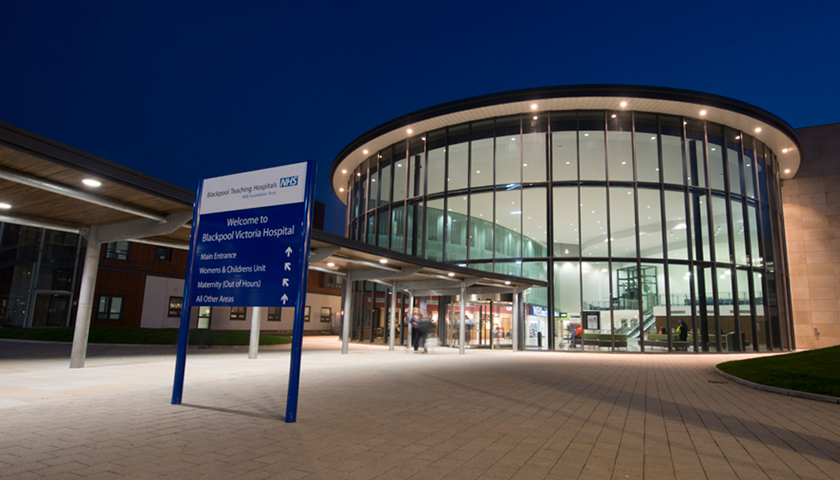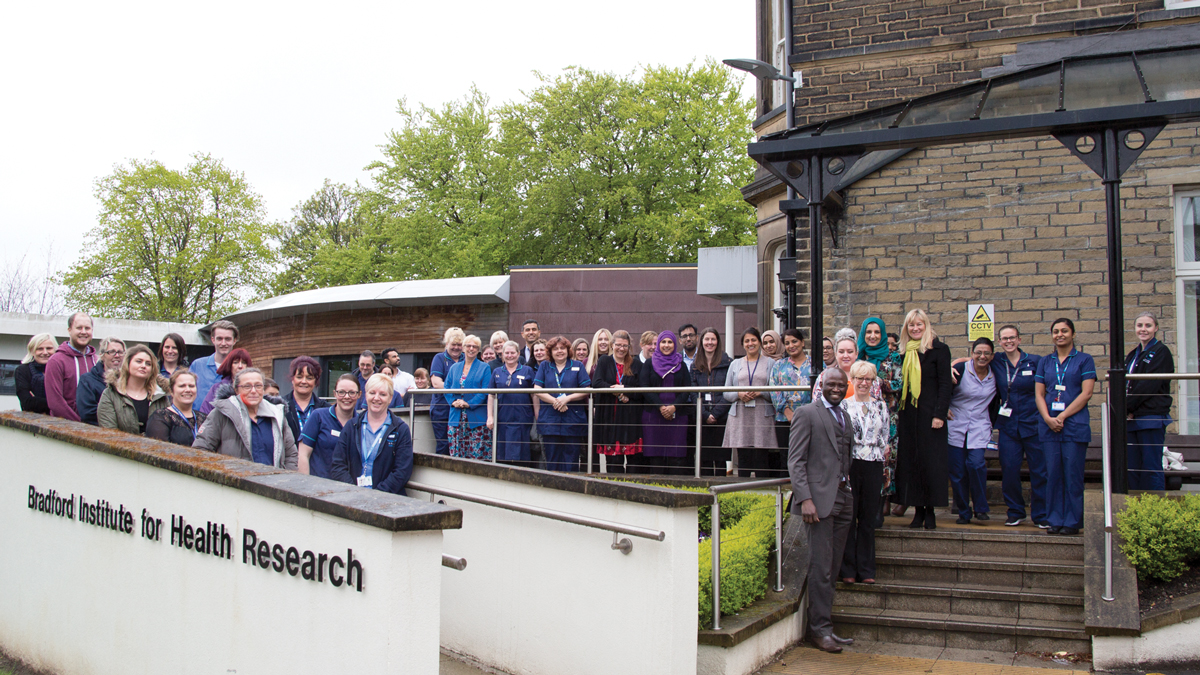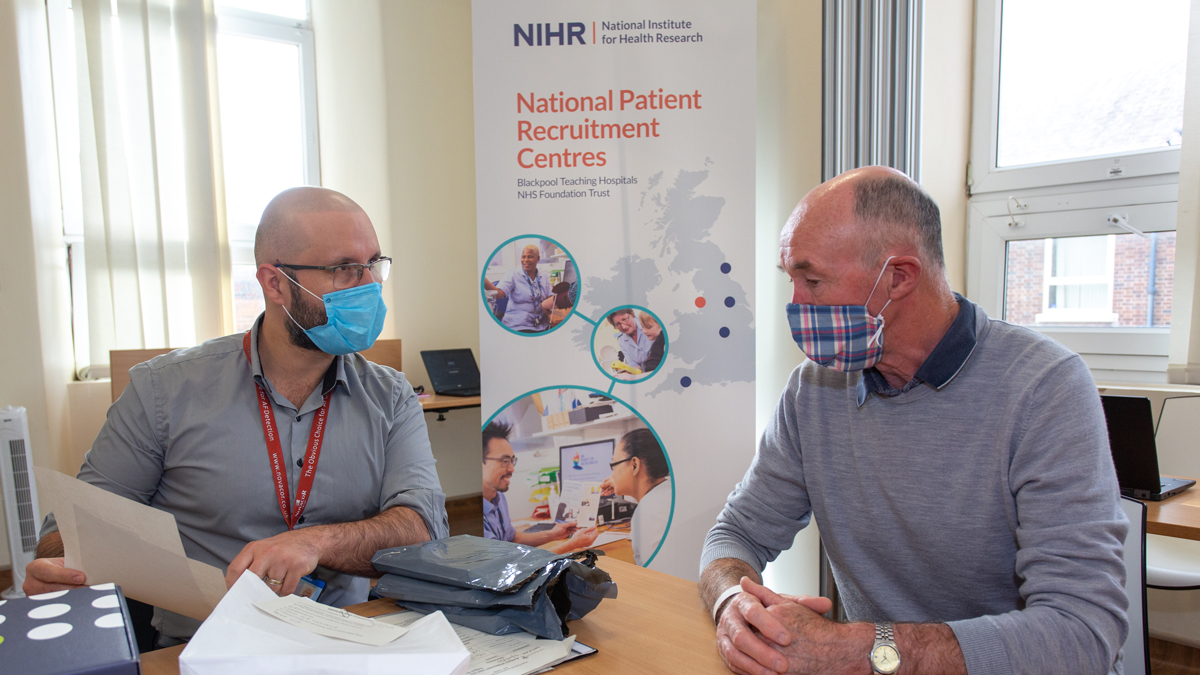An introduction to the new NIHR National Patient Recruitment Centres

A new network of patient recruitment centres is set to shape the future of commercial clinical trials in the UK by offering new approaches to conduct late-phase, large-scale research projects. In a recent pharmaphorum webinar leaders from the NIHR’s five National Patient Recruitment Centres (NPRCs) outlined how they could bring cutting-edge therapies to greater numbers of UK patients.
The NPRCs are one of the Sector Deal 2 commitments from the government’s Life Sciences Industrial Strategy and are the first centres to be funded by the NIHR that are 100% dedicated to delivering commercial research.
The regional centres have been distributed across the country to provide opportunities for patients in areas of England who may not previously have been able to take part in the latest clinical studies.
They have also been designed to improve the speed and consistency through which commercial research is delivered in the NHS.
The goal is to attract life sciences R&D projects by making it easier and quicker to deliver commercial research, in turn improving the UK’s competitiveness in the global market.
pharmaphorum’s webinar, held in association with the NIHR, featured contributions from the directors of the NPRCs, the medical leaders who are leading the programme.
Dr William van’t Hoff, chief executive officer of the NIHR’s Clinical Research Network, began proceedings by highlighting some of the successes that have already been achieved.
Yan Yiannakou
These include the delivery of COVID-19 vaccine trials and one of the UK’s first fully virtual interventional commercial clinical trials.
These studies have been made possible by the franchise-like operating model underpinning the network, which allows them to work in a harmonised manner, he said.
Franchise like operating model and collaborative working
The NIHR has provided £1.3 million in funding to each centre over three years to support their activities. Their collaborative model means the NPRCs will operate in an identical manner, offering a number of advantages to study sponsors.
As pointed out by Dr van’t Hoff, there will be a consistency of approach that could boost the UK’s competitiveness in a global market for late-stage clinical trial research.
The centres will benefit from shared standard operating procedures and will collaborate with each other as they host trials, the webinar heard.
Van’t Hoff said: “Each centre will provide a dedicated space and facilities for commercial clinical research, guaranteed access to NHS services to support research delivery, access to NHS clinicians to work as investigators, and a team of dedicated and highly-skilled research delivery staff to conduct the trials.”
Helen Quinn, director of the Joint Office for Clinical Research (University of Exeter and Royal Devon and Exeter NHS Foundation Trust), added that the centre in Exeter has been able to work with others across the country, costing and contracting for commercial research studies in a swift way.
“We can set trials up quickly for our patients, which is the most important consideration for us,” she said.
Speed, ease and volume
Using a franchise like operating model with standard operating procedures can speed up patient recruitment because of improved efficiency.
This was demonstrated by the swift set-up of a phase 3 COVID-19 vaccine study, which took just two weeks to set up and launch with over 1,900 patients recruited across the three NPRCs involved when it closed.
Dr Gavin Galasko is a consultant interventional cardiologist and director of research, development and innovation at Blackpool Teaching Hospitals NHS Foundation Trust, home to the Blackpool Patient Recruitment Centre.
He said: “We were the first in the world to recruit to this phase 3 study. We want to be there for pharma to show that the UK is a place to offer these latest state of the art late phase commercial studies that we can get to the patients quickly, efficiently, and in high numbers.”
Dinesh Saralaya, director of the NIHR Patient Recruitment Centre in Bradford, added that another factor that can allow trials to be quickly set up is the unified approach to costing across all the centres.

Each centre is also supported by research nurses, pharmacists and other research support staff who are dedicated resources available to the commercial trials run at the sites.
NPRCs are entirely focused on commercial research, further reducing the time to set up trials, the webinar heard.
The ‘recruitment engine’
Each centre is also driven by a ‘recruitment engine’ that uses several proactive strategies to reach out into the local community to empower patients to take part in, and to volunteer for, research.
As well as being linked to large hospitals, each centre will also collaborate with other healthcare organisations across primary, community and social care.
They can interact with primary care networks and integrated care partnerships (ICPs) for example to recruit from the local population.
This can help them find trial participants who are not hospitalised but who live with common chronic conditions and are not presenting in secondary care.
At the same time they benefit from links to large hospitals and their experience and expertise.
The centres can easily link with a wide network of GP surgeries and other local healthcare organisations, using linked NHS data sets to help identify patients to take part in research.
Yan Yiannakou, clinical director of the Newcastle NPRC, said that rather than going to a single GP surgery with 5,000 patients on its books, the centre works with federations of surgeries with 250,000 patients.
He said: “By working with a single point of contact in that federation and by working with the core federations around Newcastle, we can cover a population of 650,000 with a single search.”
Driving innovation
Other innovative strategies employed at the NPRCs include virtual consultations, something that many other organisations have tried to implement but not succeeded.
Recruitment is further aided by digital consent, data capture and online eligibility checks, with the model already leading to a ground-breaking virtual trial, possibly the first in Europe.
Yiannakou said that the model has already been used to conduct a virtual trial in irritable bowel syndrome with diarrhoea (Relieve IBS-D).
The trial is currently recruiting 10 patients a week, which is twice as many as was being recruited by 28 sites before the study went virtual.
It’s just one of several innovative approaches to patient recruitment that are being explored at the NPRCs.

Yiannakou said: “Our aim is to establish a relationship with our local community, to build trust with the local community, to develop understanding, reduce the fear of research and just increase engagement in that way.”
Other approaches to recruitment will be explored, aiming to put patients and their needs at the centre of the process.
Melanie Davies, professor of diabetes medicine at the University of Leicester and director of the NPRC in Leicester, said: “This is all about bringing research closer to patients across the patch, across the NHS, but to provide it in a way that is attractive and accessible to patients.”
The cutting-edge of global life sciences research
A theme running all the way through the webinar was the sense of collaboration that each centre will bring to research projects.
The NPRC clinical directors all highlighted the centres’ ability to work together and with the wider healthcare ecosystem, such as primary, community and social care to enable access to a wider cohort of patients.
Yiannakou said: “The key is a willingness to develop and a willingness to change, and we have both the drivers and the substrates for that. The drivers are the fact that we are a novel concept centre, that we specialise in a particular area.
“We want to be the best in that area, we are focused in that area, and we have a remit and an intent to refine process and improve recruitment.”
According to Saralaya, the centres are sending a “strong message” to industry about the UK’s intent to be at the cutting edge of global life sciences research.
He said that the work already under way at the five centres shows they can deliver trials at speed, with quality and with very unified costing.
He concluded: “What better advocate can it be for a sponsor wanting to come to the UK?”
About the interviewees
 Helen Quinn is the director of the Joint Office for Clinical Research, a collaboration between the University of Exeter and the Royal Devon and Exeter NHS Foundation Trust.
Helen Quinn is the director of the Joint Office for Clinical Research, a collaboration between the University of Exeter and the Royal Devon and Exeter NHS Foundation Trust.

Dinesh Saralaya is a consultant respiratory physician and honorary senior lecturer at Bradford Teaching Hospitals NHS Foundation Trust. He has served as Director of the National NIHR Patient Recruitment Centre, Bradford since June 2020.

Yan Yiannakou is a consultant gastroenterologist and Clinical Director of the NIHR Patient Recruitment Centre (Newcastle).

Melanie J Davies is Professor of Diabetes Medicine at the University of Leicester and an honorary consultant diabetologist at the University Hospitals of Leicester NHS Trust.

Dr Gavin Galasko is a consultant interventional cardiologist and the director of research, development and innovation at Blackpool Teaching Hospitals NHS Foundation Trust.












